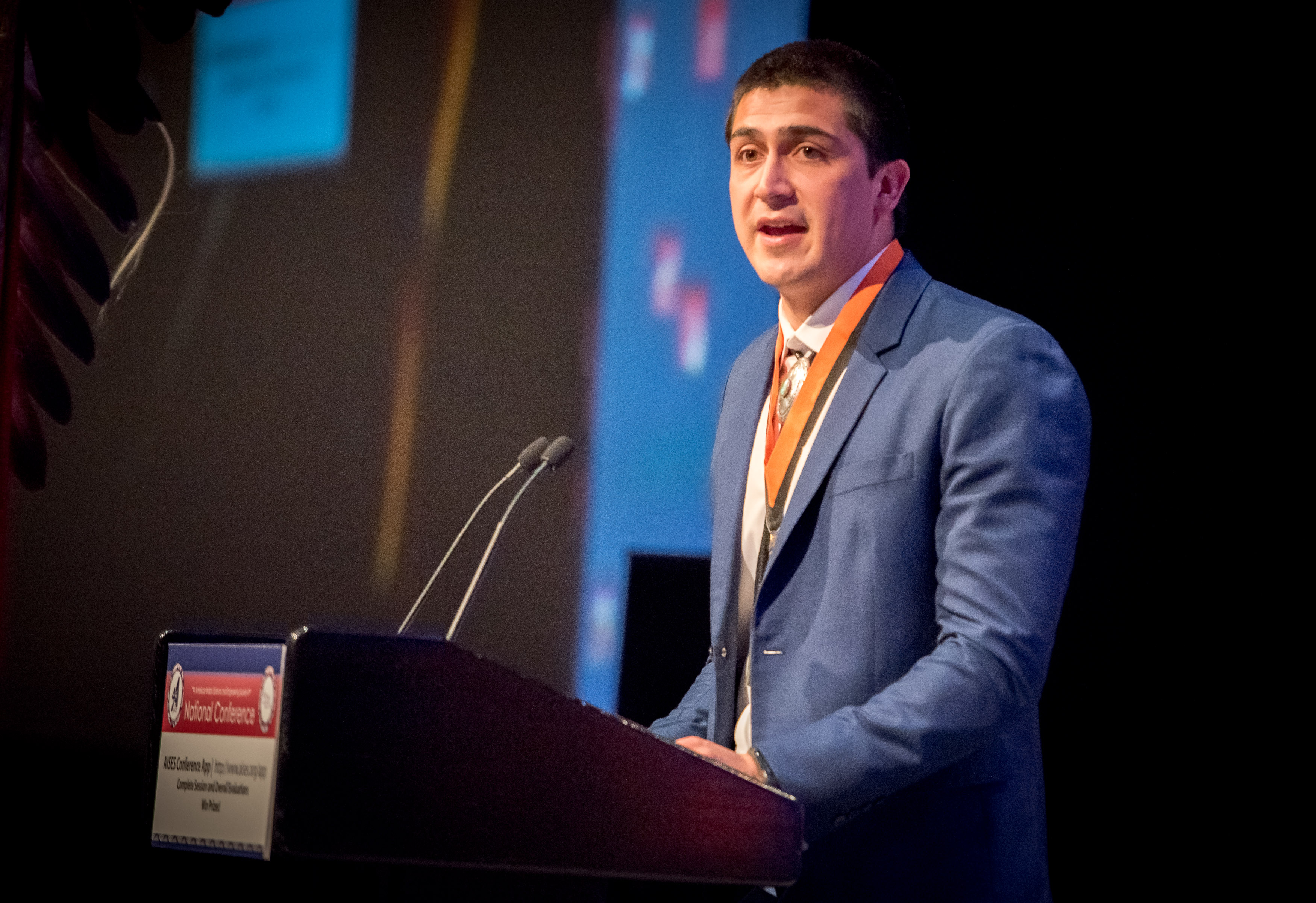By Michael Charles, COP23 Delegate
Navigating today’s education system is not an easy task. I have at many points found myself wondering how I got where I am. As citizens of the Navajo Nation, my siblings and I represented the entire American Indian demographic for our school throughout our early education. As I grew up, my culture felt entirely separate from my everyday routine in school and it was the travels back to our family’s reservation that brought an appreciation for our land, our space, and our ceremonies. The only intersection between my education and my culture was a few history assignments on the Navajo Code Talkers and the state of Arizona – and I chose those topics based mostly on the realization that interviewing my Dad would be considered a valid citation.
It wasn’t until I arrived at Cornell University that I began to understand the value of indigenous community. It was also the first time I started to doubt my ability to compete in an education system rooted in competition, grade point averages, and rankings. It didn’t take long for me to hear jokes from classmates that I only got into the university because my application showed I was American Indian. It was a fast track to imposter syndrome.
But I also found a family on Cornell’s campus by living in Akwe:kon (“All of Us” in the Mohawk language), the country’s first American Indian-themed university residence, which lies on traditional land of the Cayuga. I leaned on my Native family on campus and realized that we all dealt with very similar daily conversations. We bonded over dealing with the same responses every time we spoke about our culture: “But like… how much Native American?” “You don’t look Native American.” “So you go to college for free?”
It was this connection between us that gave us the ability to support each other, repeatedly break the imposter syndrome, and encourage each of us to educate our peers on our cultures, which are still very much alive today. Finding a community you call family is not only a human right, it’s a human need. Life is full of trials and tribulations, and we need support from our families to keep moving forward. To all my relatives who have helped me become who I am, ahéhee’ (thank you).
Today, I have the privilege of conducting my research at The Ohio State University while working towards my final dissertation and Ph.D. degree in chemical engineering. My indigenous communities and mentors have taught me to stay rooted in our indigenous values while navigating the opportunities presented by an educational system that has a history of cultural genocide among Turtle Island’s first inhabitants. This unsettled question of how Western science can complement traditional Indigenous knowledge is a continuous learning process that permeates my research.
I am currently researching a framework which places ecosystems and technological systems into one design space to place higher value on ecosystems and promote better decision making. I hope that my work lifts the voices of indigenous people and protects our frontline warriors defending our water, our air, and other gifts from Mother Earth.
As I now prepare to attend the UN Climate Negotiations in Bonn, Germany this November with SustainUS, I will bring with me my indigenous communities and mentors. Indigenous voices have been systematically left out of these decision-making processes as many of our treaties are broken for profit and power. Although colonialism has tried to bury and rewrite our cultural history, I dream that the indigenous take back the pen and write a new story: one where our culture, rights and values are honored and our leadership drives a global culture away from consumerism and towards balance and harmony.
I’m going to COP23 to uplift the voices and values that I have learned from indigenous communities, including the mandate to protect the voices of those to come – the seventh generation. I am traveling to Germany to listen to and learn from other communities, while carrying the stories and lessons I have gathered in various ways. In honor of the difficult battles my ancestors fought to enable my existence, I will stand up for our Mother Earth with the same spirit, tenacity and love that I’ve experienced within my community.
About Michael Charles: Charles is currently a Ph.D. student in the Chemical and Biomolecular Engineering department at The Ohio State University. As a citizen of the Navajo Nation, he aims to tie his research in process systems engineering to his cultural traditional knowledge. Fighting for justice in regards to climate change includes standing with communities of color, future generations, and frontline communities whose voices are often silenced in political decision making. Charles will bring his indigenous values and storytelling along with his academic background in climate change to Bonn this November.


